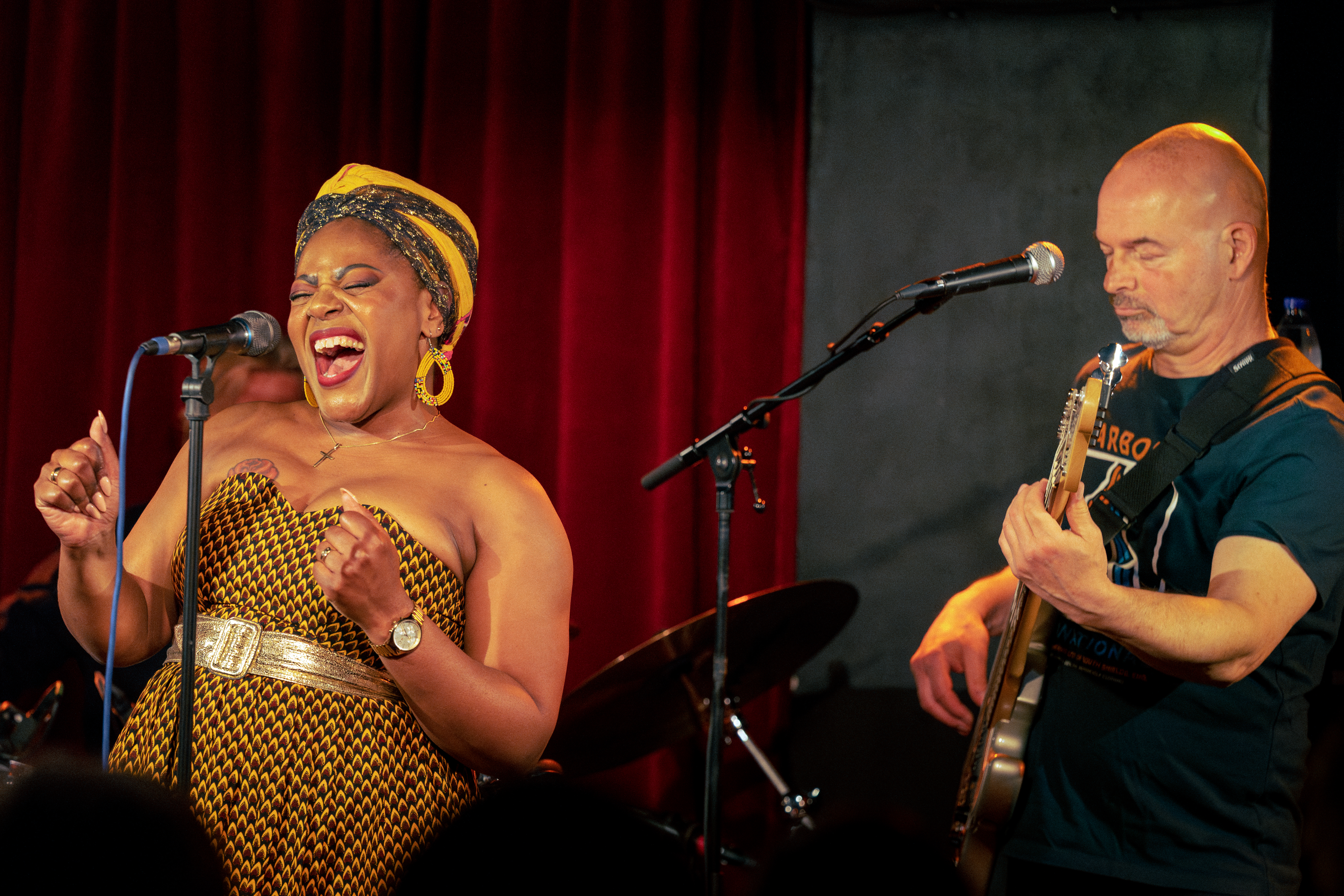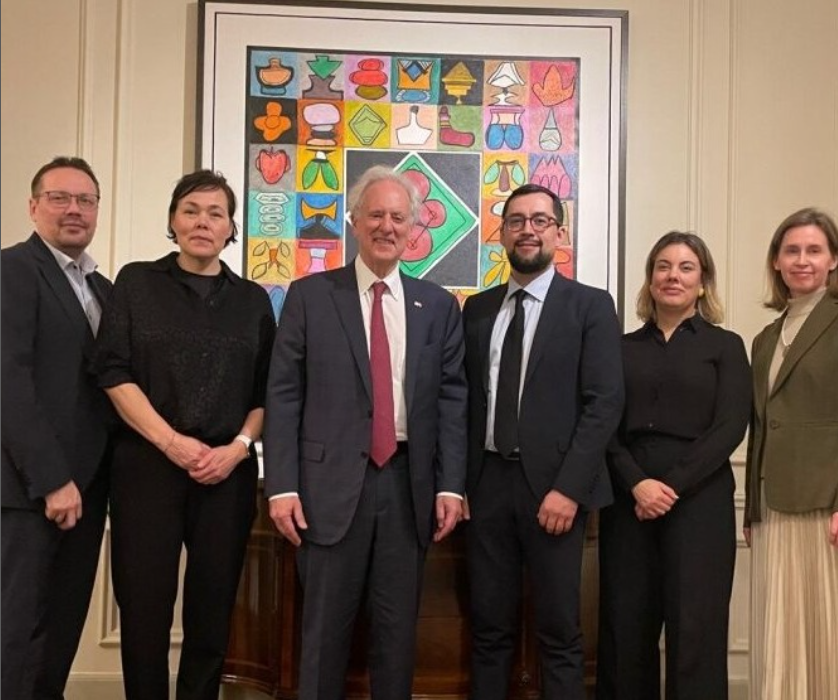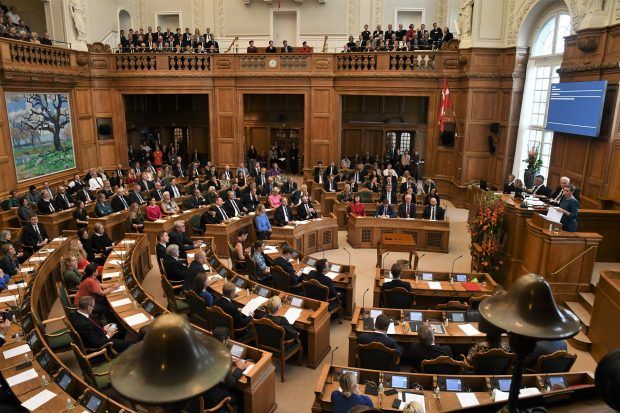Miriam Mandipira remembers the first time she visited Denmark – well, maybe not the exact year, it was 2005 or 2006, but definitely the month.
“It was November!” the Zimbabwean multi-genre singer-songwriter grimaces, moving forward in her seat, crossing her arms to caress her shoulders, casting her eyes sideways as she laughingly reminisces.
“I was like: WHAT … IS … THIS?”
She omits the words frozen, but it’s implied by the look in her eyes as she enunciates each word rhythmically, dramatically.
She then breaks out into a toothy smile: “It was such a shock to my senses. I knew it would be cold,” she says, and then in a high-pitched shrill: “But I didn’t like that at all.”
Warmed up by the people
The first thing Mandipira remembers doing after leaving the airport is stopping off to buy thermal underwear – several pairs.
It was on that day she formed her first impression of the Danes.
“I always knew they are warm and kind people, but what I grew to love about Danish culture was the way the people are so resilient: even in winter there is a way to dress so that the quality of life does not get compromised,” she recalls.
Despite the cold, Mandipira has not for a single moment considered leaving the cold of a country she made her permanent home in 2007, where she has gone on to forge a successful career in music – primarily in jazz and blues.
Scandinavian influence
If you had told Mandipira the school girl she would end up as one of Denmark’s most acclaimed international singers, she would have probably nodded knowingly.
Not only was she talented, but already as a teen she was aware of the role Scandinavian aid organisations like Danida played in helping African countries like Zimbabwe to make social, cultural, economic and political strides.
While studying ethnomusicology at the Zimbabwe College of Music in Harare – her tendency to perform in her uniform won her a music college scholarship she didn’t even apply for – she was exposed to Scandinavian ideals on a program funded by all three of the countries’ aid organisations.
It left a good first impression. “Scandinavia’s always been part of my life – even in Zimbabwe with its promotion of art and culture,” she says.
Wait for residency an ordeal
Nevertheless, when Mandipira moved to Denmark, the first nine months – as they often are for spouses of Danes who come from countries outside the EU – were very trying while she waited for the authorities to decide on whether she could stay.
“Even though I was married to a Dane, I knew the decision could go one way or the other. It’s very, very disheartening; it makes you feel like you are just hanging in the air,” she recalls.
“Sometimes it felt like the Immigration Authorities suspiciously processed visa applications without any regard for the individual case. I do know there are people who try to exploit the system, but I am not one,” she says.
Mandipira was only interested in getting one thing from the state.
“I am not here to exploit the system – I’ve always been able to fend for myself. But yeah, I feel you are categorised into the wrong basket by default. That they didn’t take my situation into consideration. Because I’ve heard of cases where people like me are denied a visa and thrown out of the country,” she says.
“You cannot work – you really can’t do anything.”
Important to learn Danish
Mandipira needed a distraction and duly threw herself into learning the language “as quickly as possible”. She saw it as a means of independence.
“Coming to Denmark as a 30-year-old and having to rely on a spouse for everything just wasn’t me. I needed to be able to understand and express myself,” she recalls.
“And really that applies to everyone: don’t forget to learn the language. It really was a big help for me, even though I don’t use Danish that much in my daily life and on stage. In fact I speak English on stage because it’s the language I am more comfortable with and feel in. I haven’t used Danish enough to actually deliver the same level of emotion when I speak it.”
A time to raise her voice
Mandipira’s music career in Denmark started with networking visits to venues like Mojo’s and La Fontaine on her brief visits to the country – “two parallel worlds of blues and jazz”.
She credits her experience for not hesitating when venues invited her to take part in a jam session, or open mic, to showcase her talent.
“Personally, I am rather on the shy side, but when it comes to my work, I put that aside,” she says.
“To this day Mojo’s holds a very special place in my heart. Because they didn’t just give me a chance, they literally wrapped me up. And didn’t let go. To hear Danish musicians tell me: ‘If you’re here to stay, I’m ready to play for you’ was very heartening. They helped me hit the ground running.”
Cultural differences
In Zimbabwe particularly, Mandipira was used to crossing genres – mid-song if need be. But in Denmark the distinction between style and genre is far sturdier.
“With my first band I did everything: from the American jazz songbook to Afro jazz and Motown. But in Denmark there is an unwritten rule of keeping the styles and genres separate. Everything has its own box,” she says.
“And that was the way between 2007 and 2012: constantly moving between a lot of different chairs!”
Certainly, there are times when Mandipira wishes the Danes could be less stringent at separating styles and genres to give everything a little more soul and spontaneity. She respects the discipline, but in return, being less stringent with style and genre could add a little more soul, she reasons.
“You might know how to sing. But what does it do to you when you sing? Because whatever it does to you, it will do exactly the same for the audience. That’s why I choose to channel emotion with my singing style. I always want the listener to ‘feel’ the song I am singing and ‘know’ why I am singing it.”
Her most testing time
Her fifth year in Copenhagen proved to be her most challenging when her Danish husband unexpectedly passed away after suffering a stroke.
The emotional toil was immense, and it didn’t help matters that her continued residency was suddenly under doubt.
“There was a lot of turbulence in my life – at different levels at the same time. As an immigrant, I was thinking: ‘Okay, my papers are tied to me being married’,” she remembers.
But Mandipira needn’t have panicked. Her fluency at the language, overall integration efforts and marriage were enough to prove a connection to Denmark.
“I was already well established by that time and they could see that my career was also beginning to pick up speed. I knew who I was and what I wanted. My life was very much wrapped up in my work, and it was at this time that my focus became narrower and a little more tailored for me,” she says.
Nevertheless, Mandipira has not yet got a Danish passport because Zimbabwe does not permit dual citizenship. She is hopeful it will follow the lead of its neighbour Zambia, the homeland of her second husband.
Not entirely like home
Mandipira regards Denmark as ‘home’ – even when she visits Zimbabwe, she finds herself talking about going “home to Denmark”.
But she continues to struggle with the authorities in such situations.
“Coming from a non-Western country can be a different experience when you travel. You’re subjected to much more invasive questioning at borders, and you can’t really fight it. You have to show much more documentation: that has been my life,” she says.
“It’s not something to complain about: it’s just what it is, though I can’t help questioning the reasoning behind it. You learn to circumvent it by always having more unnecessary paperwork and documentation than you need so you don’t have any problems. So that I found problematic and I still do, but I find my way around it by always getting my papers in order beforehand.”
Echoes of Tina Turner
Today, Mandipira has started calling herself a singer-songwriter – with good cause, as her next album is composed of original material.
There’s a twinkle in her eye when she tells me this is her time – serendipitously she’s exactly the same age, 46, as Tina Turner was when she revived her career in the early 1980s.
“Her passing hit me hard – so I started listening to an audio of her biography, and that’s when I realised that my career is maybe on a similar trajectory,” she says.
“Our new album [‘Ndiwe’] is very meaningful to me. It gives me goosebumps like when I first started in music. It is Afro-inspired soul, a little bit of rock and even some pop. So yes, we are bringing it on,” she enthuses.
BIO:
Name: Miriam Mandipira
Age: 46
Education: DiplomaFB in ethnomusicology
Profession: Singer-songwriter
In Denmark since: 2007
Miriam Mandipira recommends … :
Neighbourhood: Nørrebro – I love that part of the city. It’s vibrant and lively, with a myriad of cultural influences, which for me as an African woman means I can turn a corner and buy things like these [hair extensions] or special cuts of meat that are not common in Danish shops. It also has the funkiest cafes and all sorts of live music options.
Live music event: Couleur Cafe in June – an explosive celebration of African culture, art, crafts, food and dance. Last time I attended, I ate good food, bought things for my hair, plus clothes and jewellery.
Festival: Copenhagen Jazz Festival – there’s the main festival, but also so many fringe festivals, like Jazz & Roots.
Season: Summertime – the freshness of the air and the music – so much quality, all in a relatively short space of time between June and July.
Museums: Anything to do with Vikings. I have always been crazy about them, and I love to read and learn about them. The first thing I did when I arrived here was to visit all the Viking museums – and to finally taste some mead.
Copenhagen Jazz Festival:
Miriam Mandipira is performing twice at this year’s festival: on July 5 and 8.
The first show, performed by Miriam Mandipira & A Very Big Band, is at Bartof Station in Frederiksberg at 21:00. Tickets cost 250 kroner.
The second show, performed by Miriam Mandipira & The Soul Family – as part of Roots & Jazz Copenhagen – is at Balders Plads in Nørrebro at 17:30. The concert is free entry.
Concerts should contain sneak previews of new album ‘Ndiwe’ – ‘It’s you’ in Shona – which is due out this September.














